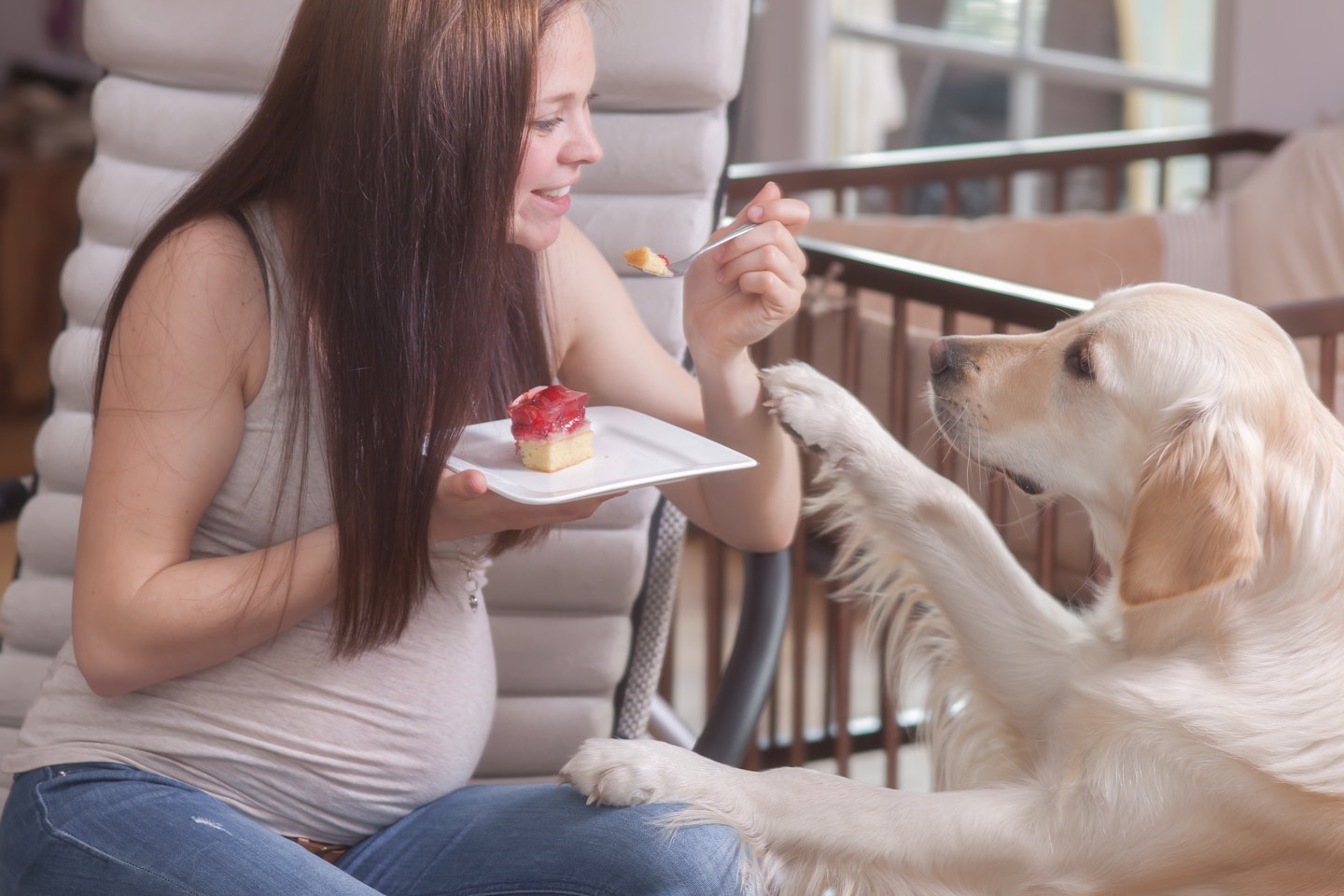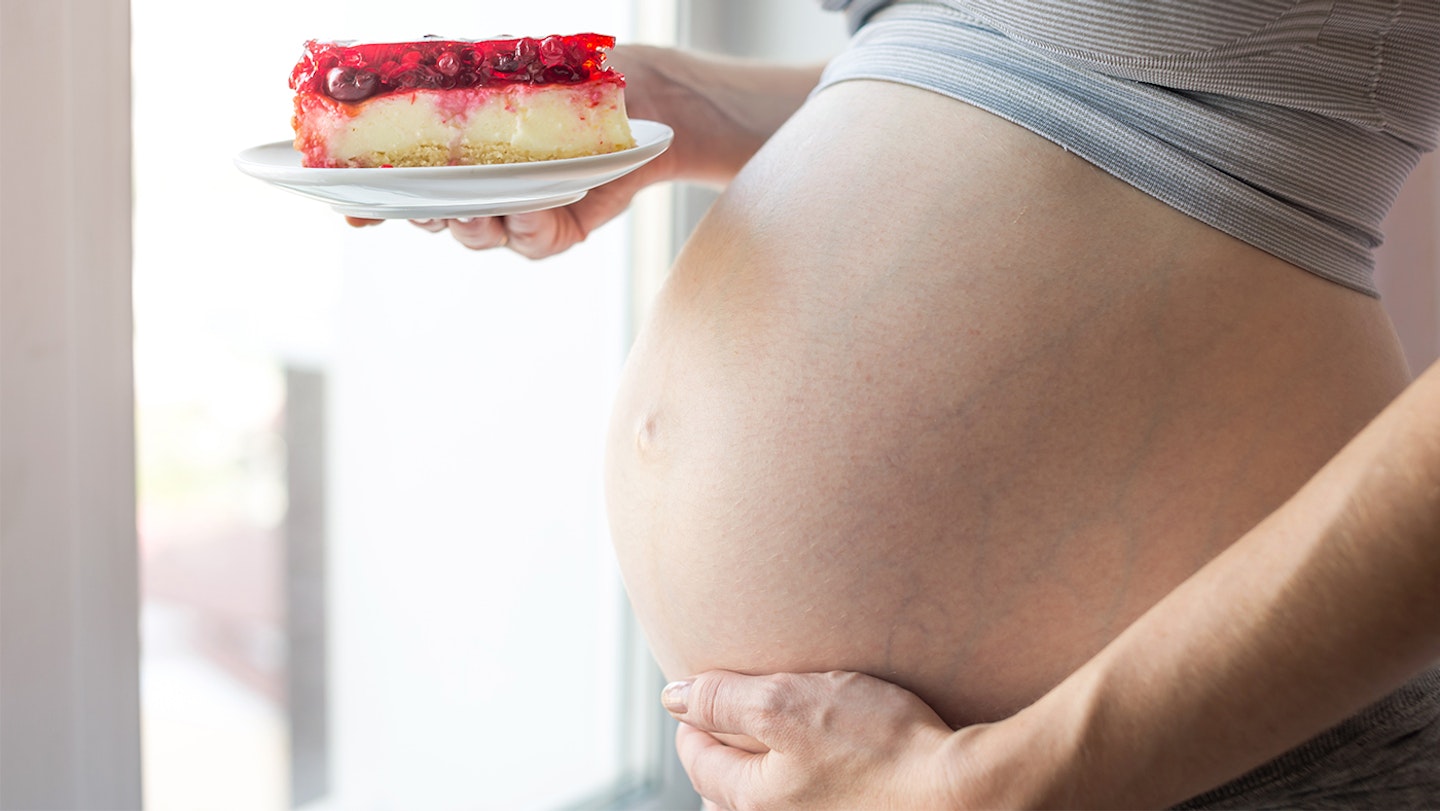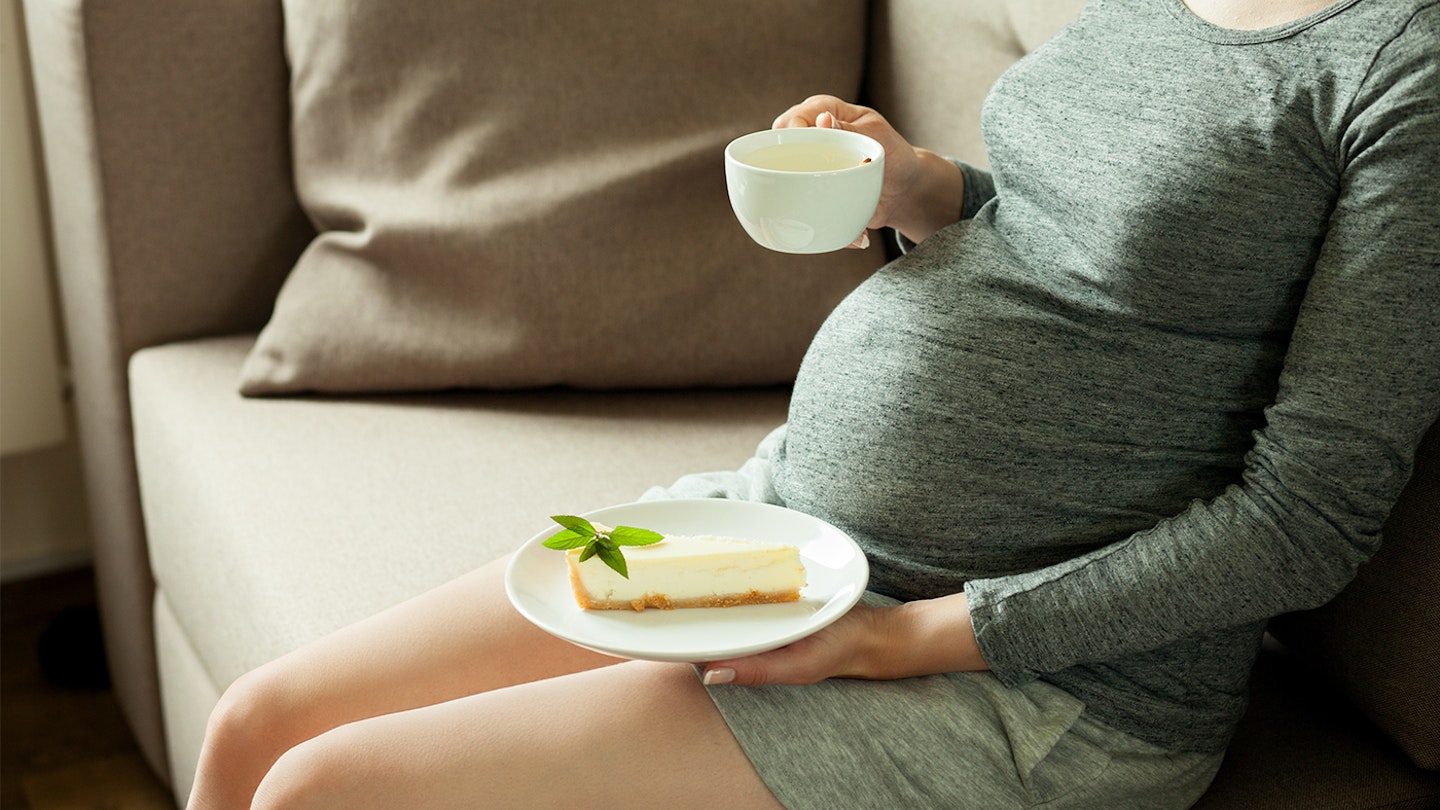When you're expecting a baby, you become hyper-aware of the food that isn't safe to eat during pregnancy. One of the foods that can cause confusion for many of us is the delicious creamy dessert that many of us love. But can you eat cheesecake when pregnant?
The confusion lies in the ingredients that may or may not be present in cheesecakes. This is because of harmful bacteria. The NHS states that "Unpasteurised dairy products may contain listeria. This bacteria can cause an infection called listeriosis."
"Eating unpasteurised foods when pregnant can be extremely dangerous as unpasteurised foods such as soft cheeses may contain dangerous bacteria including one that can actually cause tuberculosis and listeria, these can both cross over into the placenta and lead to infections, blood poisoning in the baby and even miscarriage," Jana Abelovska Medical Advisor at Click Pharmacy tells us.
Cheesecake you can eat when pregnant
There are a few different ways that cheesecake can be made, some are baked while others don't require an oven. Some are made with cream cheese, while there are some created with double cream or mascarpone. While all delicious, you might find this means you need to do a bit of inspection before working out if you can tuck in.
Cheesecake to avoid
Most types of cheesecake can be made or eaten safely when you're pregnant. You simply need to pick a recipe or cheesecake product that if unbaked, does not contain the following:
• Raw eggs or partially cooked egg
• Unpasturised cheese or other ingredients
To put it simply, unbaked cheesecakes that contain raw or partially cooked eggs or unpasteurised cream cheese or toppings made from unpasteurised cream or milk are a no-no.

Cheesecake to eat
If the cheesecake of choice is baked, then it's ok if they contain raw or partially cooked eggs or unpasteurised cream cheese or toppings made from unpasteurised cream or milk as they have been baked which means that the temperature of the oven will kill any salmonella that may be present, removing the risk to you.
When in doubt, always check the ingredients. If you are at a restaurant or friend's house and they offer cheesecake, it may be wise to avoid it just to be safe if you cannot check the ingredients yourself.
Many mums-to-be find it easiest to simply choose baked cheesecake as whether these are fresh or frozen does not make a difference.
The good news is that most UK supermarkets offer delicious cheesecake you can enjoy while pregnant. So dig in!
What ingredients are unsafe in pregnancy?
If you're scratching your head and wondering what exactly pasteurisation is, you're not the only one.
"Pasteurisation is a process in which foods such as milk are treated with mild heat, usually under 100 degrees Celsius which works to eliminate pathogens and extend shelf life," Jana explains. "Many supermarket products go through the pasteurisation process to give them a longer shelf life for storing in supermarkets."
Unpasteurised dairies like certain milk, cheeses and cream are raw and may contain harmful bacteria such as Salmonella, Listeria and E. coli.
The majority of milk and cheese you find at the supermarket will usually be pasteurised, but there are some that aren't, which is why you should make a habit of checking the label to work out which cheese is safe to eat during pregnancy.
Dairy to most definitely be avoided for pregnant women includes:
• Mould-ripened soft cheeses (e.g. Brie and Camembert).
• Soft blue cheese (e.g. Danish blue and Gorgonzola).
• Any unpasteurised cow's milk, goats' milk or sheep's milk.
• Any foods made from unpasteurised milk.
What about eggs?
As raw eggs can contain salmonella bacteria, they should not be eaten during pregnancy. So that means no recipes or products that contain raw eggs e.g. hollandaise sauce, raw cookie dough and yep, you guessed it - any cheesecake recipes that don't involve baking.

Making cheesecake at home
If you fancy making your very own cheesecake (that you can eat too!), you should either make one using pasteurised ingredients or choose a baked recipe so you'll know that any harmful bacteria will be killed in the oven.
If you are baking your cheesecake, remember that dishes that contain eggs should be cooked until the internal temperature reaches 71 °C to ensure the eggs are fully cooked. You may wish to invest in a baking thermometer to help with this.
What to do if you've eaten unsafe cheesecake
Mistakes happen and if you realise - or have reason to believe - that you've consumed uncooked or underbaked cheesecake, you may feel concerned about how this may harm you or your baby. You should contact your doctor or midwife to discuss the next steps. Symptoms you may experience include fever, diarrhoea and fatigue. You may not notice any symptoms or sometimes these can take weeks to make an appearance but either way, you should speak with a health professional.
